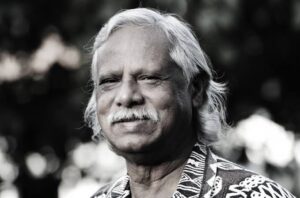Through the columns of your esteemed newspaper we would like to bring to the notice of that entire world that a leader is the nation builder of a nation. They rule, guide, or inspire others. So, we would like to publish one leaders biography in this newspaper.
A leader have to be educated and have qualified and skillful knowledge. People all around must have the right to know about them.

This article shall help them to know about the leaders who are they, how they lead, how they rule, what is the way to give their strong voice.
Our generations are totally in the dark about the leaders. They have to know how they are, how they raise their voices by leadership quality. Parents should take the responsibility to tell their children. That can be a strong inspiration for them to become a leader in future to make the nation big. The article shall help them to know about the great leaders.
So, if you kindly publish the article in this newspaper as soon as possible, we will be very glad.
Thanking you
Yours sincerely,
Mr.Abidur Rahaman, Zamrana Ahmed, Nazifa Fariha Mumu, Md.Mahfuzul Islam; East West University Students, Dhaka. The article is given below:
Martin Luther King Jr.
Born in 1929 in Atlanta, Georgia Martin Luther King Jr. is considered to be the greatest African-American leader of all times and one of the greatest leaders of the 20th century. He was a fighter, activist and revolutionary in the movement for civil rights for the American blacks. He was part of the clergy of the Ebeneezer Baptist Church and spent most of his life fighting for the rights of his fellow brothers and sisters in a non-violent way inspired by Mahatma Gandhi. He was awarded the Nobel Peace Prize for his fight for equality in a non-violent way and is greatly remembered for his famous ‘I have dream’ speech which has inspired generations of leaders after him.
At the roots Dr. King’s civil rights convictions was an even more profound faith in the basic goodness of man and the great potential of American democracy. These beliefs gave to his speeches a fervor that could not be stilled by criticism. He rose in 1955 from a newly arrived minister in Montgomery, Ala. to a figure of national prominence. It was Dr. King who dramatised the Montgomery bus boycott with his decision to make it the testing ground, before the eyes of the nation, of his belief in the civil disobedience teachings of Thoreau and Gandhi.
In the summer of 1963, Dr. King led the March on Washington, stirring the emotions of millions with the words “I have a dream.” On Dec. 10, 1964, he won the Nobel Peace Prize.
His strong beliefs in civil rights and non-violence made him one of the leading opponents to American participation in the war in Vietnam.
At the time he was assassinated in Memphis, Dr. King was involved in one of his greatest plans to dramatize the plight of the poor and stir Congress to help blacks. He called his venture the “Poor People’s Campaign.”
“Like anybody, I would like to live a long life. Longevity has its place. But I’m not concerned about that now. I just want to do God’s will. And He’s allowed me to go up to the mountain. And I’ve looked over. And I’ve seen the Promised Land. I may not get there with you. But I want you to know tonight, that we, as a people, will get to the
promised land!”
With these words, Dr. Martin Luther King Jr. built a crescendo to his final speech on April 3, 1968. The next day, the civil rights leader was shot and killed on a balcony of the Lorraine Motel in Memphis, Tenn.



